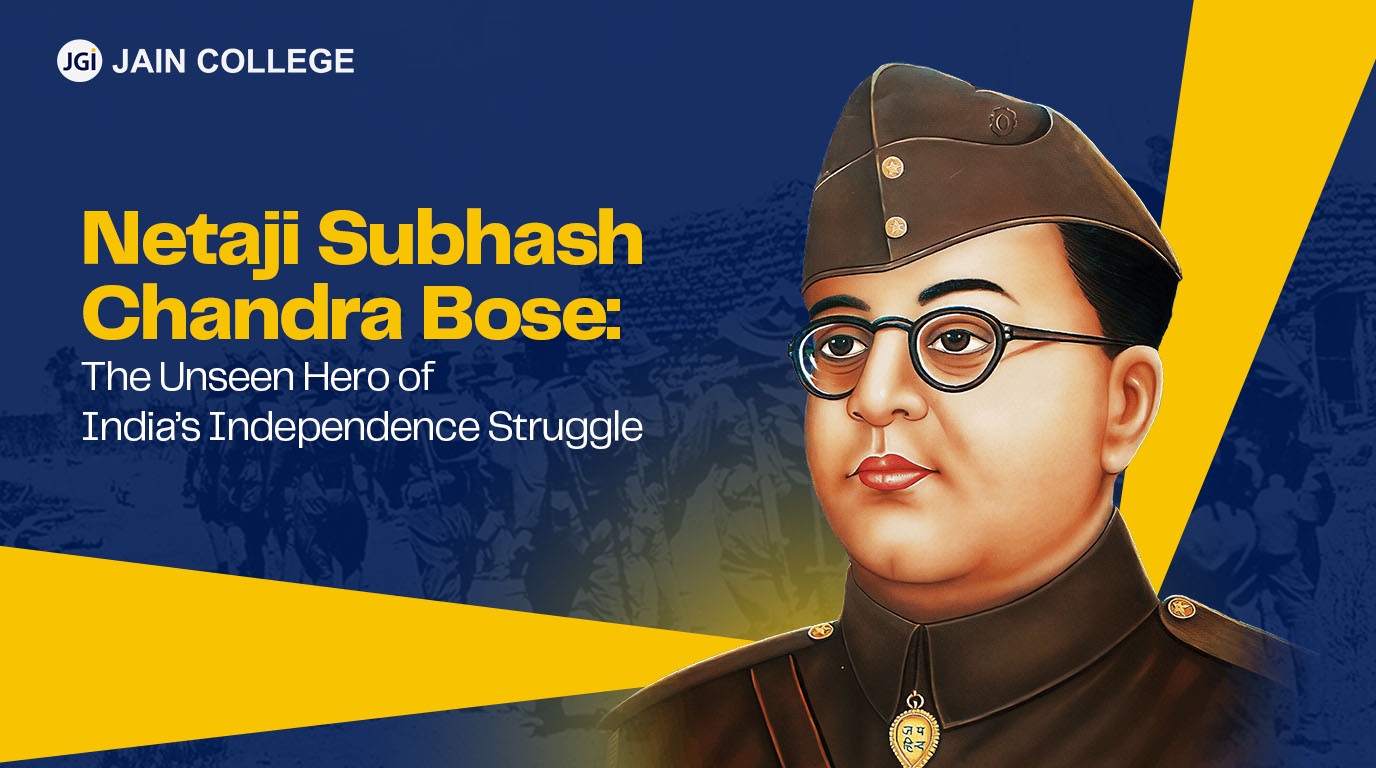
The efforts of several extraordinary leaders mark India’s fight for freedom from British colonial rule. Among them, Subhash Chandra Bose—affectionately called Netaji—stands out as a visionary patriot who dedicated his life to India’s sovereignty. Although his name might not always occupy the spotlight in India’s independence movement discussions, his contribution is undeniable. In many ways, Netaji’s life was a testament to grit, determination, and a burning desire to see his motherland free.
Subhash Chandra Bose was born on 23 January 1897 in Cuttack, now in Odisha. His father, Janakinath Bose, was a successful lawyer, and his mother, Prabhavati Devi, was a religious, caring figure. As a child, Bose was known to be academically gifted, consistently performing well in school. He later moved to Calcutta (now Kolkata) to pursue higher education at the prestigious Presidency College.
Subhash was deeply impressed by the principles of Swami Vivekananda, which went a long way in shaping his thoughts on spiritualism, patriotism, and the moral duty towards the nation. He returned to India to complete his higher education and crossed to England to sit for the Indian Civil Service (ICS) examinations, which he passed with high marks. He soon felt that serving the British government was not in his line of interest. Despite the prestige attached to the ICS, Bose quit in April 1921. He then gave himself the whole time to India's freedom struggle.
Returning to India, Bose joined the Gandhian-led nationalist movement and the Indian National Congress. While Gandhi advocated non-violence and civil disobedience, Bose believed that more direct and even militaristic action could be necessary to force the British out. This difference in ideology led to occasional tensions within the Congress. However, Bose continued to rise in influence, and his leadership skills became evident when he was elected President of the Congress twice, in 1938 and 1939.
During his first term, Bose formed the National Planning Committee, focusing on India's economic self-sufficiency. He understood the need for a nation to industrialise, modernise, and undertake science-based development. Though their ideologies differed, Gandhi admired Bose's nationalism and agreed with his plans in principle, even if they often disagreed about implementing such an approach.
Bose's revolutionary thoughts—such as looking for foreign alliances to battle British colonialism—often conflicted with the mainstream Congress leadership. He famously disagreed with the principle of non-violent protest as the sole method of achieving independence. He believed that if non-violence failed to yield results, India should be open to more forceful means.
The gap in strategy gradually grew and made Bose resign as president of Congress in 1939. While he lost mainstream leadership over the party, the people remained devoted to this fiery spirit and continued to work towards a cause without hesitation.
Though the INA could not triumph in entirely throwing out the British, the movement profoundly affected India's fight for independence. It was the trials of INA personnel in the country after the war that caused public outbursts all over the country and generated patriotic fervour across the nation. Even several British Indian Army soldiers became sympathetic to the cause of the INA; this created doubts about the reliability of Indian troops under the British command.
This agitation contributed to a rising tide of nationalism, making India progressively more challenging for the British Empire to govern. Many historians argue that the legacy of INA, combined with widespread nationalist sentiments, was a key factor in the British decision to leave India in 1947.
The life of Netaji took a tragic and mysterious turn in August 1945 when, according to official accounts, he died from injuries sustained in a plane crash in Taiwan. Rumours and conspiracy theories, however, abound about his survival. Some believe that Bose staged his death to escape Allied forces or that he lived out his life under another identity.
Whether true or not, his disappearance is secondary; one thing is sure: Netaji Subhash Chandra Bose inspires millions today. His firm belief that India had to fight back from under oppression, his practical strategies for a strong, self-reliant nation, and his efforts at unifying Indians across caste, religion, and class form the bedrock of his glorious legacy.
Netaji Subhash Chandra Bose may not be as often spoken of as Gandhi or Nehru, but his role in India's independence struggle was critical and unique. His belief in direct action, his international efforts to secure support, and his leadership in the INA played a crucial part in weakening the foundations of British rule.
Numerous heroes shaped India’s sovereignty, each contributing unique perspectives and efforts. Netaji remains one of the most compelling figures—a leader willing to explore unconventional methods and alliances to secure freedom for his motherland. His name still resonates across the nation, reminding Indians of the power of courage, unity, and an unbreakable will to throw off the chains of oppression.

JAIN PU College, a part of the renowned JGI Group, is committed to empowering students with quality education.
Beyond academics, the college ensures its online content reflects the same standard of excellence. Every blog and article is meticulously vetted and proofread by subject matter experts to ensure accuracy, relevance, and clarity. From insightful educational topics to engaging discussions, JAIN PU College's content is crafted to inform, inspire, and add value to its readers, reflecting the institution's commitment to intellectual growth and innovation.
View all Blogs